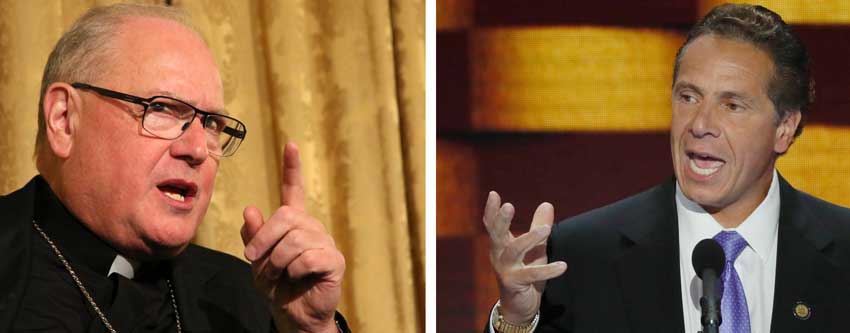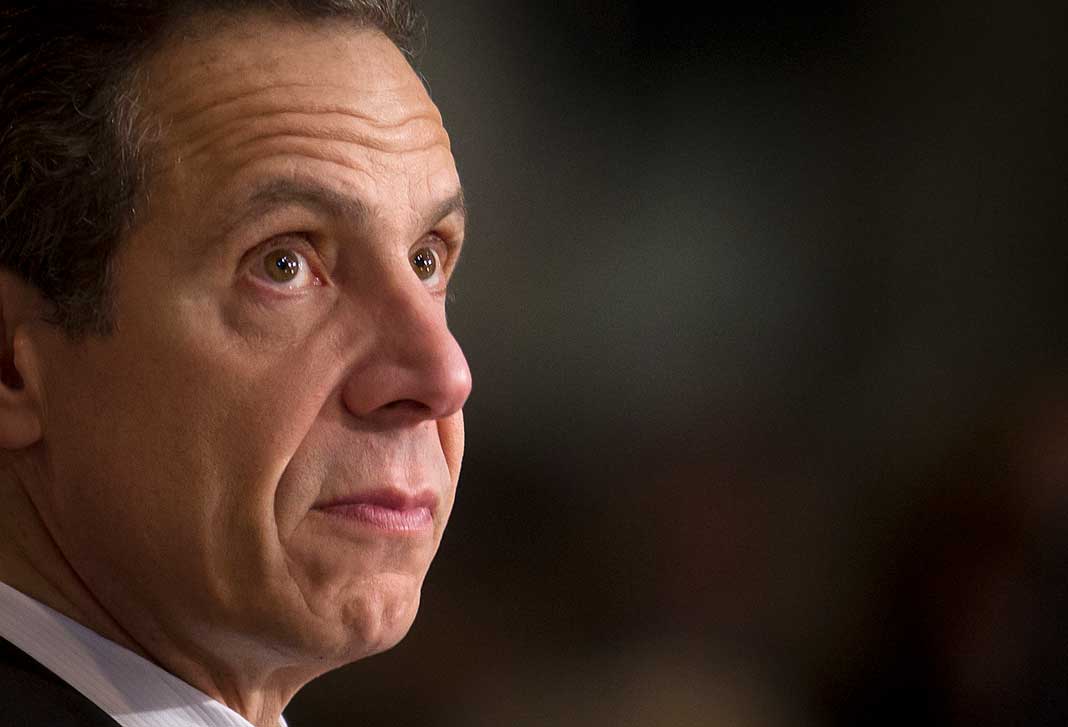
The Catholic Church has many problems on its hands at the moment – some of them entirely of its own making. Yet in a very real sense and despite all the Church’s achievements over two millennia it has never had anything else.
The Church may be guided by the Holy Spirit but it is staffed by human beings after all. But among the real problems facing the Church today is the counter-Gospel witness of political leaders and prominent public figures who publically describe themselves as Catholic but who just as publically reject the Church’s faith and its moral teaching in key areas. What to do about this is an especially thorny problem.
This particular matter has come to the fore yet again – this time in the US. As many readers will be aware, Governor Andrew Cuomo of New York celebrated with his Democratic Party colleagues the signing into law for New York of the most unrestrained abortion law in the nation. Governor Cuomo’s name will go down in history, objectively speaking, as a legaliser of infanticide.

But perhaps two things shocked many faithful Catholics who seek to follow Christ. One is that Cuomo identifies himself as a Catholic. The second was the sickening sight of the Governor celebrating his legalisation of the killing of children up until birth with his colleagues, including the lighting up of New York’s iconic One World Trade Centre in pink.
Faithful Catholics are perfectly entitled to feel betrayed and angry.
More importantly, the entire human population which believes in the sanctity of human life and that the killing of children is a moral travesty are entitled to feel this way – and they are right. For the objective evil of his action, Governor Cuomo is a repulsive figure. Yet he is a pitiful but also typical example of the sort of problem the Church now too-often finds itself confronted with in the civic and political squares of public life. And he is not alone.
See related story:Monica Doumit: Our voice for life will not be silent
In Australia and throughout the world, notably in places such as Europe and the US, there are numerous Catholic politicians, entertainers and prominent public figures who use the advantage of their fame or prominence to openly enact or advocate against the faith they claim as well as against objective moral reason and truth.
If this was so in relation to things such as mere economic principles, for example, it might not be so disconcerting or alarming. But when such actions give aid or rise to moral evil – whether it be the enslaving of other human beings, the killing of children, the sick, the depressed, the mentally ill and the elderly or sexual exploitation of human persons in general – then such Catholic figures are trading in evil.

About the only defence such individuals may have – may – is what we would normally call an invincible ignorance, a curious malady. It’s diagnosable symptoms seem to be fame, a rat cunning in politics or entertainment simultaneously combined with a total insensibility to moral truth. Fear of ratings retributions or loss of votes may be another symptom. Such a condition may one day come to be defined as a disability, a sort of tragic untreatable illness that people in public life often get. Yet the very ignorance which spurs them on does incalculable damage – to their victims, to the common good of society, to the innocent – and all while they claim that they are Catholics.
How the Church responds becomes a difficult question. Following Governor Cuomo’s collusion with infanticide, some Catholics, including bishops, called for his excommunication from the Church. However Cardinal Timothy Dolan, who conducted his own war of words with Governor Cuomo (and who is the Governor’s bishop), stated that this was not his preferred option. One can see why. A figure such as a Governor Andrew Cuomo would doubtless revel in the media attention and fame such an action generated. On the other hand, doing nothing would not appear to be an option. But what?
What is clear is that strong leadership is needed in the Church on how to handle this counter witness which preaches to the ignorant and uninformed that one’s faith is only a badge with no claim on one’s own life or moral issues of any kind. This would seem to be pre-eminently a work of the shepherds, but it is also a work of the baptised who must shoulder the responsibility for striving in the civic and political spheres towards that little-known work of mercy: liberating society from the rule of the ignoramuses.
The counter witness of the faux Catholics does incalculable harm, both to society and the common good, but also, in its own way, to the communion of the faithful we call the Church. Confronting their ignorance is necessary, if occasionally unpleasant. And the refusal to address it could, perhaps, be described as the silence of the shepherds.
